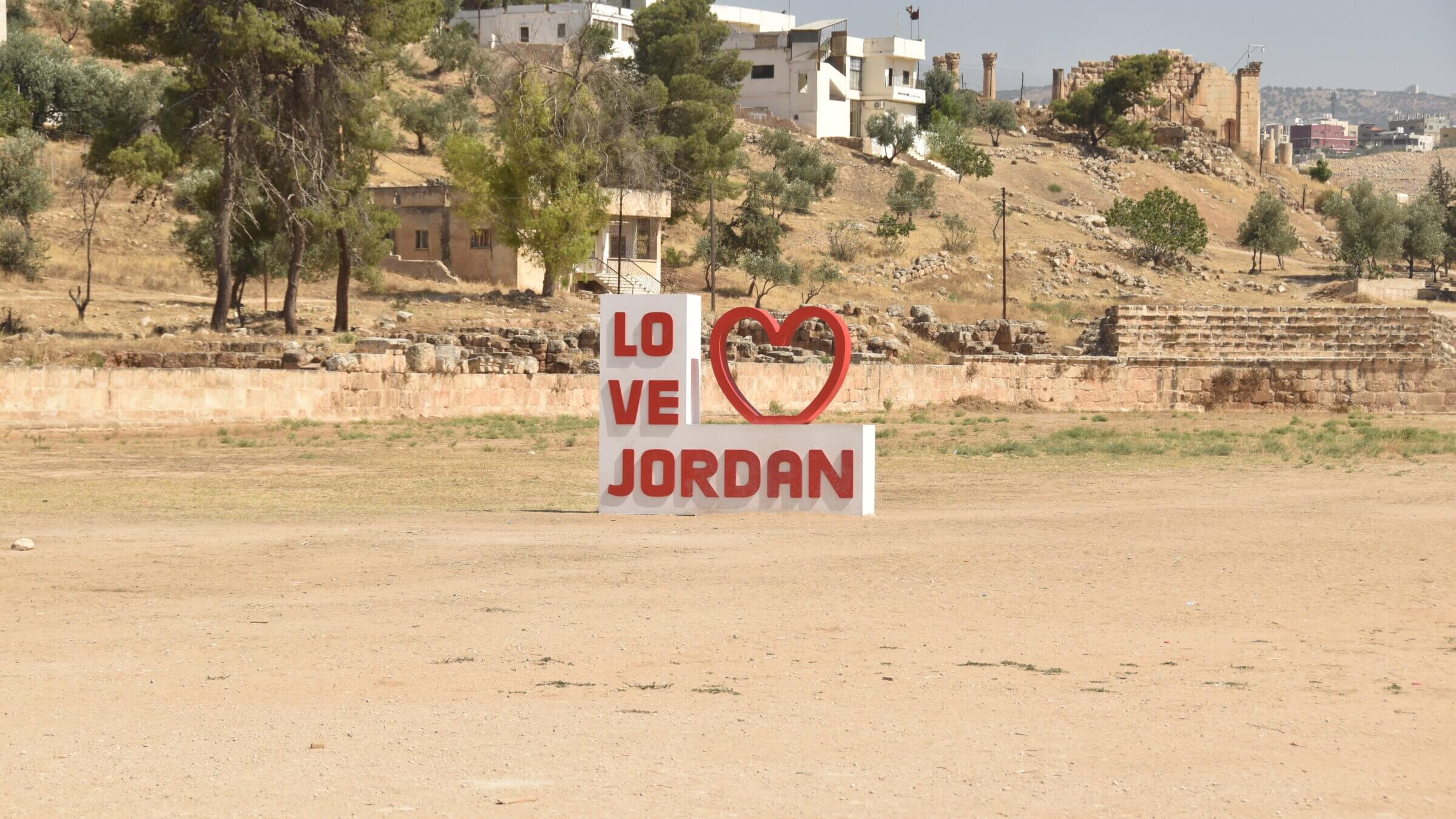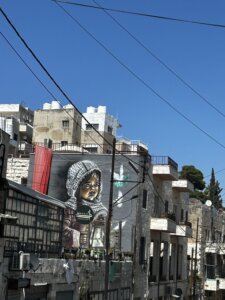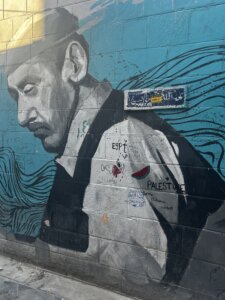Jews and Muslims need to embrace commonalities over differences
Traveling to Jordan during a time of heightened tension, a Pakistani-American Muslim teenager gained a deeper understanding of both antisemitism and Islamophobia

A photo from the author’s trip to Jordan. Photo by Zara Hai
This is one in a series of essays written by high school students in response to the events of Oct. 7 and its aftermath. You can find the full collection of essays at this page.
When Oct. 7 happened, I was horrified. My heart bled as I heard about innocent people getting attacked and abducted while attending a musical festival, about parents crying for their martyred children, for the children that had been taken as hostages. The US press was relentless in its coverage of the devastation that was left in the aftermath of the attack. My parents and I attended a vigil at our local community center. It was a moving event where our Jewish community members spoke movingly about the family that they were connected to in Israel. We were all one, united in our empathy.
As the Israeli response started, we all prayed that it would be swift and decisive. We were anxious as we knew the response would be significant and we could only hope that it would not affect innocent people. It’s always the innocent that suffer, never the ones who perpetuate the crime. As the weeks turned into months and the suffering of the innocent Gaza civilians was all over the social media, I felt very upset and unsettled. There were people buried, children injured and bleeding and mothers wailing about their dead babies.
The ancient concept of “an eye for an eye” should not be how justice is dispensed. As the news media continued its coverage of the crisis, the narrative seemed to become more about “Us” vs. “Them.” As a Muslim teenager, I started feeling othered because of my religion. I did not like what I was feeling and sought to explore my own identity that I had previously taken for granted as well as perhaps my own biases that I grew up with.

My school chose to not address the issue at all other than to express sadness for all the human lives lost. We were left to flounder with our own thoughts. It was then that I came across the Writopia program, Connecting Across Cultures, which invited Muslim and Jewish teenagers to come together to express their fears and anxiety in the face of this crisis. As a Pakistani-American Muslim teenager, I really wanted to connect with other Muslim teens and to explore this crisis with Jewish allies. For two months, a group of 10 Jewish and Muslim teenagers struggling to express our thoughts and emotions triggered by this conflict talked about our life experiences and identity, and listened to each other’s writings.
I had the opportunity to hear the perspective of this diverse group of Jewish and Muslim teenagers. This was a deeply moving experience that gave me a better understanding of the “other side.” I expressed my fears about Islamophobia and the prejudice that my parents faced after September 11, 2001 and heard my counterparts narrate their family histories and experiences with antisemitism dating back to World War II. I began to appreciate how each member of our group viewed this conflict and the unique perspectives each brought to the table.
We memorialized our writings in a book — we wrote our individual stories, as well as collaborative stories highlighting our common experiences and humanity as Jewish and Muslim teenagers. The writings were presented to a large audience and published in May 2024. This experience galvanized me to continue my work focused on promoting a more diverse understanding of the Middle East, its history, traditions, and conflicts. This spurred my interest in spending the summer in Jordan to continue my journey of understanding.

As part of a 21-student cohort of NSLI-Y (National Security Language Initiative for Youth, a State Department sponsored program) students, I traveled to Amman, Jordan for six weeks this summer. My goal was to promote intercultural understanding by learning and speaking Arabic, while living with a local Jordanian/Arab host family. The high school students in my cohort were from all over the US and we studied Arabic intensively during the days and spent evenings socializing with our host families. The conflict in Gaza was a deeply personal event for many Jordanians since their country has a border with Israel and the West Bank, and because more than 50% of the population has Palestinian roots.
My trip coincided with one of the most intense periods of the conflict in Gaza. Feelings ran deep, and most Jordanians disagreed with the position of the US government which was seen as biased in favor of Israel and dismissive of the civilian toll in Gaza. It was also a deeply personal experience for me. The intercultural exchange and the experience of living in a city that has existed for over 2,000 years were extraordinary. I could feel the richness of history running through the ground and in the atmosphere around me.
I tried to explain how the people in the US, especially the Jewish community felt about the Gaza crisis. At the same time, I heard first-hand experiences from Jordanians and Palestinians some of whom had lost homes and family members. I saw media coverage in Jordan which was very different from how the conflict is covered in the United States. I learned that to bridge a divide, it’s important to focus on things we all have in common. That is the best way to make a connection and to respect the other. Both sides value humanity, saving innocent lives and how historical trauma persists through generations and affects our perception of current events. The Jewish community has the Holocaust, and the Palestinians have the Nakba. We cannot underestimate either. Both sides are also exposed to media and unfortunately to attempts to dehumanize the “other.” The lesson for all of us is to humanize suffering by listening to the other side. That is what I have tried to do.
Since my return, my student organization, Students Demand Action, organized a local event at our library highlighting antisemitism and Islamophobia. I carry within me the humanity of both sides and wish that more people could take the time to “see the other side.” My mother always told me to treat others like you would like to be treated. I wish we could all adhere to this simple wisdom and realize that we all have more in common with each other than our perceived differences.















